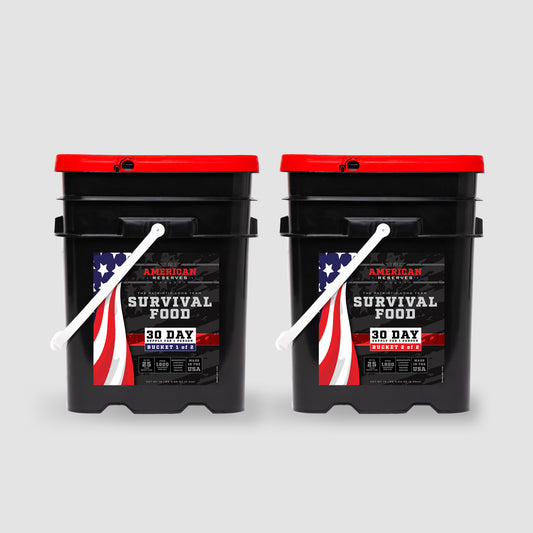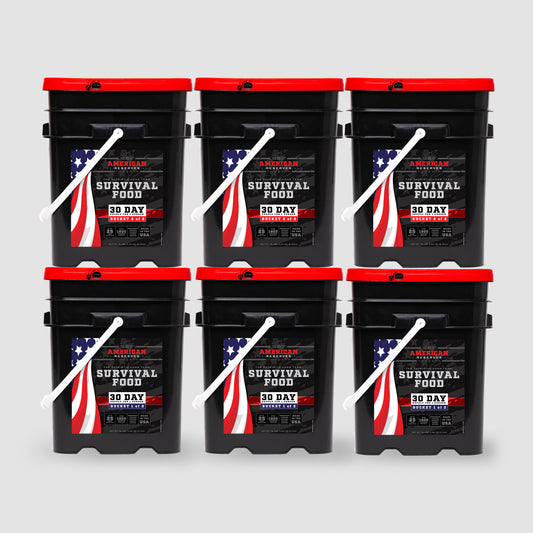
What To Do During a Power Outage: Essential Tips
Power outages can strike without warning, leaving families and individuals scrambling to adapt to the sudden change. Knowing what to do during a power outage is vital for ensuring the safety and well-being of everyone in the household. From keeping children calm to maintaining essential services, this comprehensive guide offers practical advice tailored to homeowners, renters, and preparedness enthusiasts alike. Equip yourself with the knowledge to handle power outages smoothly and efficiently.
Why Being Prepared For a Power Outage Matters
Being prepared for a power outage is essential because it ensures the safety, comfort, and well-being of everyone in the household. Power outages can disrupt daily routines, compromise home security systems, and affect essential services such as heating, cooling, and medical equipment. For families with children, it is crucial to have strategies in place to keep them calm and entertained, while preparedness enthusiasts understand the importance of having backup plans for food, water, and communication. By being proactive and having a comprehensive plan, individuals can mitigate the impact of power outages, maintain a sense of normalcy, and safeguard their loved ones during unexpected disruptions.
What To Do During a Power Outage?
Stay Calm and Assess the Situation
The first step is to remain calm and check if the outage is limited to your home or affects the entire neighborhood. Look outside for any visible signs of damage and listen to local news on a battery-powered radio for updates.
Report the Outage
Contact your utility company to report the outage and get an estimated time for power restoration. Many utility companies have automated systems or apps that allow you to report outages and receive updates.
Unplug Electronics
To prevent damage from power surges when electricity is restored, unplug sensitive electronics such as computers, televisions, and appliances. Leave one light on so you’ll know when the power returns.
Use Alternative Light Sources
Use a flashlight, battery-powered lanterns, or candles for light. If using candles, exercise caution to prevent fire hazards by keeping them away from flammable materials and never leaving them unattended.
Keep Refrigerators and Freezers Closed
To preserve food, keep refrigerator and freezer doors closed as much as possible. A refrigerator can keep food cold for about 4 hours, and a full freezer can maintain its temperature for up to 48 hours.
Stay Warm or Cool
Depending on the weather, take steps to stay warm or cool. In cold weather, wear layers of clothing and use blankets. In hot weather, stay hydrated and use battery-powered fans or cool cloths.
Use Generators Safely
If you have a generator, use it according to the manufacturer’s instructions. Never operate a generator indoors or in an enclosed space to avoid carbon monoxide poisoning.
Check on Neighbors
Especially if you have elderly or vulnerable neighbors, check on them to ensure they are safe and have the necessary supplies.
Stay Informed
Continue to listen to local news updates and follow any instructions from emergency services. Use a battery-powered radio or a car radio to stay informed if your phone battery is low.
Plan for Extended Outages
If the blackout is expected to last for an extended period, consider relocating to a place with power, such as a friend’s home or a community center. Ensure you have a checklist for any medical needs and sufficient supplies for your family.

72 Hour Emergency Food and Drink Supply - 32 Servings
$36.99

30 Day Emergency Food Supply

3 Month Emergency Food Supply
$835.00
How Can You Quickly Determine The Cause Of The Outage?
To quickly determine the cause of a power outage, start by checking if the outage is isolated to your home or affects the entire neighborhood. Look outside for any visible signs of damage, such as downed power lines or blown transformers. Next, check your circuit breaker panel to see if any breakers have tripped, which could indicate an internal electrical issue. If everything appears normal, use a battery-powered radio or smartphone to listen to local news updates or check your utility company's website or app for information on reported outages in your area. Contacting your utility company directly can also provide insights into the cause and expected duration of the outage.
Should I Turn The Breaker Off During a Power Outage?
Turning off the breaker during a power outage is generally not necessary and can sometimes be counterproductive. However, it is advisable to turn off or unplug sensitive electronics and appliances to protect them from potential power surges when electricity is restored. If you suspect a specific electrical issue within your home, such as a short circuit or faulty wiring, turning off the main breaker can be a precautionary measure to prevent further damage or fire hazards. Always consult with a professional electrician if you are unsure about the safety of your electrical system during an outage.
How To Manage Food and Water Supplies During a Power Outage
- Keep Refrigerators and Freezers Closed: To maximize the shelf life of perishable foods, keep refrigerator and freezer doors closed as much as possible. A refrigerator can keep food cold for about 4 hours, while a full freezer can maintain its temperature for up to 48 hours.
- Use Perishable Foods First: Prioritize consuming perishable items such as dairy, meat, and leftovers before they spoil. Plan meals around these items to minimize waste and ensure you use them while they are still safe to eat.
- Stock Up on Non-Perishable Foods: Maintain a supply of non-perishable foods such as canned goods, dried fruits, nuts, and granola bars. These items do not require refrigeration and can provide essential nutrients during an extended outage.
- Store Emergency Water Supplies: Keep an emergency supply of bottled water, aiming for at least one gallon per person per day for drinking and basic hygiene. If you anticipate a prolonged outage, consider additional water storage solutions such as water purification tablets or portable water filters.
- Invest in Freeze-Dried Emergency Food Kits: Stock up on freeze-dried emergency food kits, which have a long shelf life and require minimal preparation. These kits can provide balanced nutrition and peace of mind, ensuring you have reliable food sources during extended power outages.
Should I Unplug The Washer and Dryer During a Power Outage?
Yes, it is advisable to unplug the washer and dryer during a power outage to protect them from potential power surges when electricity is restored. Power surges can cause significant damage to the internal components of these appliances, leading to costly repairs or replacements. By unplugging them, you safeguard your investment and ensure that your washer and dryer remain in good working condition. Additionally, unplugging these appliances can help reduce the overall electrical load when power returns, minimizing the risk of overloading your home's electrical system.
Essential Tools and Supplies To Have During a Power Outage
- Flashlights and Batteries: Ensure you have multiple flashlights and a sufficient supply of batteries to provide light and navigate safely in the dark.
- Battery-Powered Radio: A battery-powered or hand-crank radio is crucial for staying informed about weather updates and emergency instructions.
- First Aid Kit: Keep a well-stocked first aid kit to handle minor injuries and medical emergencies.
- Portable Phone Charger: A fully charged portable phone charger can help keep your mobile devices operational for communication and emergency calls.
- Survival Food Kits: Stock up on survival food kits, which offer long-lasting, easy-to-prepare meals to sustain you during extended outages.
- Manual Can Opener: A manual can opener is essential for accessing canned goods when electric can openers are not an option.
- Warm Blankets and Clothing: Have extra blankets and warm clothing available to stay warm if the outage occurs during cold weather.
- Water Storage: Store an adequate supply of bottled water for drinking and basic hygiene, aiming for at least one gallon per person per day.
- Multi-Tool or Swiss Army Knife: A versatile multi-tool or Swiss Army knife can be invaluable for various tasks and minor repairs.
- Candles and Matches: Keep candles and matches on hand as a backup light source, but use them with caution to prevent fire hazards.
Conclusion
Being prepared for a power outage is not just about having the right tools and supplies; it's about ensuring the safety, comfort, and well-being of your household. By understanding what to do during a power outage and taking proactive steps to manage food, water, and essential services, you can navigate these disruptions with confidence and ease. Whether you're a homeowner, a parent, or a preparedness enthusiast, having a comprehensive plan in place can transform a potentially stressful situation into a manageable one. Stay informed, stay prepared, and empower yourself to handle power outages effectively, ensuring peace of mind for you and your loved ones.
Final Thoughts
American Reserves combines expert emergency and survival knowledge with premium, locally sourced ingredients from the USA to create top-tier emergency food supply kits. These kits are designed to provide essential nutrition during critical times, ensuring you and your family are well-prepared for any situation. Trust American Reserves to deliver the quality and reliability you need when it matters most.
Sources
- https://www.powerhousetv.com/energyefficientliving/powerquality/powersurges
- https://www.kgw.com/article/news/verify/weather-verify/unplugging-electronics-before-a-thunderstorm-can-help-protect-them-from-damage/536-4ab3706f-e0f0-4bb6-93cd-74b2f93e5700
- https://www.redcross.org/get-help/how-to-prepare-for-emergencies/common-natural-disasters-across-us.html


